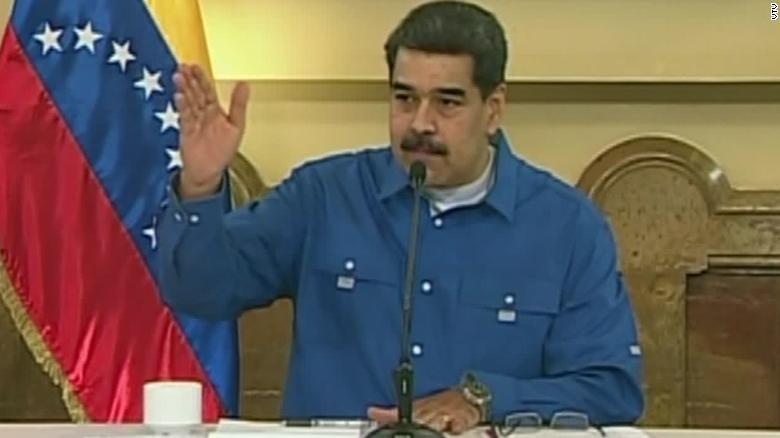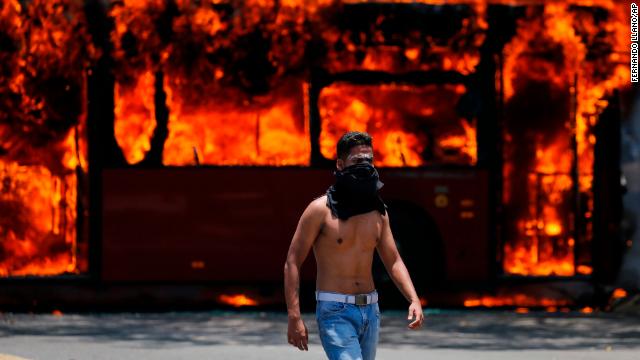In his televised address Tuesday, Nicolas Maduro appeared to deny US Secretary of State Mike Pompeo's claim that the Venezuelan President was planning to leave the country and head to Cuba but was convinced not to by Russia.
Pompeo said in an interview with CNN's Wolf Blitzer that Maduro's plane was parked on the runway, and he was prepared depart to Cuba that morning before being talked out of it, by unnamed Russian officials.
The secretary of state said he could not reveal how the US obtained that information, but that Washington was talking to "scores and scores of people on the ground."
However, Pompeo's claim has been refuted by Russian Foreign Ministry spokeswoman Maria Zakharova, who told CNN: "Washington tried its best to demoralize the Venezuelan army and now used fakes as a part of information war."
Maduro said Pompeo's claims were "craziness" and called them "lies and manipulation."
"Please, Mr. Pompeo, you’re not being serious," Maduro said.

